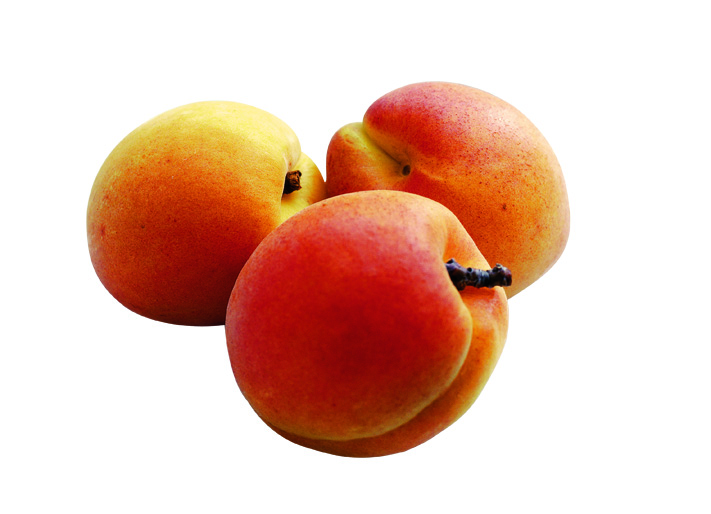Bursting with colour and flavour, these fruit and veg are also packed with goodness, says Barbara Baker. APRICOTS A great source of vitamin A – vital for good eyesight – but also a very good source of fibre. Apricots can also help to improve your mood – their tryptophan content is converted to serotonin (the …

Bursting with colour and flavour, these fruit and veg are also packed with goodness, says Barbara Baker.
APRICOTS
A great source of vitamin A – vital for good eyesight – but also a very good source of fibre. Apricots can also help to improve your mood – their tryptophan content is converted to serotonin (the body’s ‘happy hormone’).
LETTUCE
A great source of vitamin C and beta-carotene, which work together to prevent the cholesterol build up in artery walls that causes heart disease and stroke. Lettuce is heart-healthy in other ways – its fibre helps to lower cholesterol, and its potassium helps to lower high blood pressure. Interestingly, the darker the leaves, the more nutritious the lettuce – Romaine has five times more vitamin C than iceberg, and fresh lettuce has a higher nutritional content than bagged salad.
SPINACH
With a reputation for containing a wide range of phytonutrients with
anti-cancer properties, spinach also contains vitamin K which will help to keep bones strong. It’s also a fat-free source of iron.
STRAWBERRIES
A great source of vitamin C, vitamin K (good for bones and teeth) and fibre, and also anti-cancer compounds that may slow the growth of cancer cells or activate the body’s natural defences. One study found that people who eat the most strawberries are three times less likely to develop cancer than those who eat few or none. Vitamin C-rich fruits are also known to help relieve asthma.
RED PEPPERS
An excellent source of immune-boosting vitamin C and lycopene, red peppers also contain vitamin B6 and folic acid which help to reduce the body’s levels of homocysteine, which causes damage to blood vessels – giving you greater protection against heart attack and stroke.
WATERMELON
One of the most delicious thirst-quenchers on a summer’s day as it’s 92 per cent water. The magnesium content can improve your mood and also help lung function as magnesium-rich foods are particularly good for asthmatics. You can also roast the seeds to make a tasty snack.
TOMATOES
A great source of vitamin C, tomatoes are best known for their high lycopene content, a carotenoid that can help to fight breast, colorectal, endometrial, lung and prostate cancers. They also contain biotin, which improves energy levels and gives you glowing skin.
BASIL
Studies have shown that basil has anti-bacterial properties, and also contains a substance that works in the same way as over-the-counter anti-inflammatory medications, such as aspirin and ibuprofen. This suggests eating lots of basil may play a part in giving relief to inflammatory health problems, such as rheumatoid arthritis.
BLUEBERRIES
They’re rich in important antioxidants thought to neutralise the free radical damage that can lead to major illnesses and diseases, including cataracts, glaucoma, heart disease and cancer. There is currently some debate as to whether ‘free radicals’ are as bad as we thought, but most antioxidant-rich foods are high in a range of beneficial nutrients so it’s important to keep up your five-a-day. Studies also show that blueberries could help to improve brainpower and learning, and, cystitis sufferers take note, they contain the same compounds found in cranberries that keep the urinary tract healthy. It’s important to note, blueberries contain oxalates, naturally-occurring substances that may interfere with the absorption of calcium, so avoid eating them within three hours of eating high calcium food (such as cheese or milk) or taking calcium supplements.
CHERRIES
There’s growing interest in the power of cherries to relieve the pain of arthritis and gout. Research suggests that they may also lower the risk of cancer and heart disease. One study has shown that cherries contain at least 17 different antioxidants. They’re a great source of melatonin – a hormone that regulates sleep patterns – so they may also aid a good night’s sleep.
Is seasonal the best?
What with strawberries on the shelves in January, and tomatoes available all year, in this part of the world, unseasonal fruit is all around us. But does it taste as good? And is it as nutritious? Some research suggests that seasonal veg has a higher vitamin and mineral content – and we think it tastes much better, too.
